An article by the Wisconsin
Department of Agriculture, Trade, and Consumer Protection (DATCP) for
Pet
Journal, May 2012
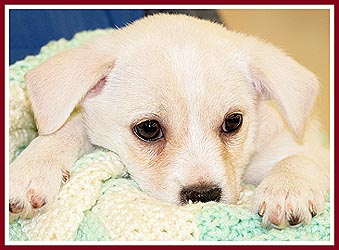 Although some of the
licensees under Act 90 have been licensed and subject to inspection previously
by the US Department of Agriculture, many are new to the world of inspections.
Let's talk about what happens when the inspector calls. Although some of the
licensees under Act 90 have been licensed and subject to inspection previously
by the US Department of Agriculture, many are new to the world of inspections.
Let's talk about what happens when the inspector calls.
First of all,
the point of inspections is not to put anyone out of business. The point is to
be sure you meet the requirements so you can stay in business.
For
pre-licensing inspections, DATCP inspectors call ahead of time to make an
appointment at a time convenient to you. The inspector examines records and
walks through the facility with you, discussing as you go.
Inspectors
use a detailed checklist of the requirements in ATCP 16, the administrative
rule that contains standards. These were developed by a committee made up of
breeders and shelter representatives. (Please see the links at
the bottom of this page or the
DATCP website: Dog Breeders & Sellers Law for more
information about ATCP-16 and deteails about the standards of care required by
Act 90.)
The checklist
covers:
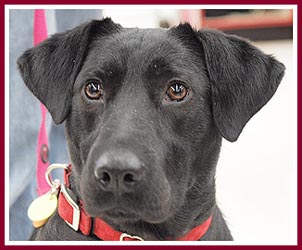 Record-keeping: Whether records are retained long enough and
are accessible, show locations where dogs are kept, contain information about
each individual dog (breed, markings, birthdate if known, where it came from
and where it went, veterinary care), and detail plans to provide socialization. Record-keeping: Whether records are retained long enough and
are accessible, show locations where dogs are kept, contain information about
each individual dog (breed, markings, birthdate if known, where it came from
and where it went, veterinary care), and detail plans to provide socialization.
Certificates of veterinary inspection (CVI's):
Whether they are properly completed for each dog sold, reflect required tests
and vaccination, and are distributed to buyers.
General care of dogs: Whether dogs get enough
food, water, exercise, and veterinary care; are kept in compatible groups; and
get adequate socialization and enrichment with toys, activity and contact with
other dogs.
Enclosures: Whether they are safe and clean,
with enough space and ventilation; whether tethering is done safely and
appropriately;a nd whether outdoor exercise areas provide enough space and
shade.
Transportation: Whether dogs are transported in
clean, dry, safe conditions with fresh air and protection from heat and cold,
and are removed from vehicles often enough.
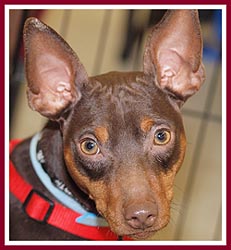 For each individual
standard, the inspector checks one of three boxes: compliant, non-compliant, or
not applicable. As the inspector works, he or she discusses observations with
you. You will receive a written report, which includes the checklist, photos of
the facility, and explanations of any violations in more detail - along with
how to correct them and the timeline to do so. There shouldn't be any surprises
when you read the report. For each individual
standard, the inspector checks one of three boxes: compliant, non-compliant, or
not applicable. As the inspector works, he or she discusses observations with
you. You will receive a written report, which includes the checklist, photos of
the facility, and explanations of any violations in more detail - along with
how to correct them and the timeline to do so. There shouldn't be any surprises
when you read the report.
If your
facilities and practices meet the standards, you will receive a regular
license. If you have some violations, you may receive a conditional license
until they are corrected, or the inspector may instruct you to correct them by
the time of the next routine inspection. Major violations that pose a threat to
dogs will likely require correction before you receive a license. If violations
are so numerous or so extreme that the dogs are in imminent danger or they
cannot be corrected within the license period, we will revoke the temporary
license you receive when you first apply. That has only happened twice to date.
As you can
see, the standards are clear and straightforward, but the inspectors do have
latitude in deciding the next step if you don't meet some of them. They will
work with you to help you meet the standards, as long as you are also willing
to work with them. The goal here is to keep you in business while protecting
the dogs and the people who buy or adopt them.
If you have
questions, please feel free to call DATCP at 608-224-4872, or email
DATCPanimals@wi.gov.
 Act 90: Protecting Pets and People, From
the Regulators' Viewpoint Act 90: Protecting Pets and People, From
the Regulators' Viewpoint 
 Act 90: The
Good, the Bad, and the Ambiguous, by Monica Gardner, Waupaca Co.
HS Act 90: The
Good, the Bad, and the Ambiguous, by Monica Gardner, Waupaca Co.
HS 
 DATCP website: Dog Breeders & Sellers Law DATCP website: Dog Breeders & Sellers Law

 Act 90:
DATCP Dog Sellers and Dog Facility Operators License
List Act 90:
DATCP Dog Sellers and Dog Facility Operators License
List 
 How to File a
Complaint How to File a
Complaint 
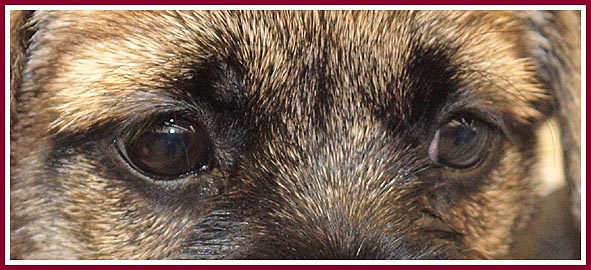
|

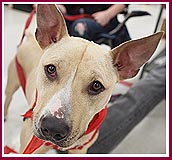
 Although some of the
licensees under Act 90 have been licensed and subject to inspection previously
by the US Department of Agriculture, many are new to the world of inspections.
Let's talk about what happens when the inspector calls.
Although some of the
licensees under Act 90 have been licensed and subject to inspection previously
by the US Department of Agriculture, many are new to the world of inspections.
Let's talk about what happens when the inspector calls. Record-keeping: Whether records are retained long enough and
are accessible, show locations where dogs are kept, contain information about
each individual dog (breed, markings, birthdate if known, where it came from
and where it went, veterinary care), and detail plans to provide socialization.
Record-keeping: Whether records are retained long enough and
are accessible, show locations where dogs are kept, contain information about
each individual dog (breed, markings, birthdate if known, where it came from
and where it went, veterinary care), and detail plans to provide socialization.
 For each individual
standard, the inspector checks one of three boxes: compliant, non-compliant, or
not applicable. As the inspector works, he or she discusses observations with
you. You will receive a written report, which includes the checklist, photos of
the facility, and explanations of any violations in more detail - along with
how to correct them and the timeline to do so. There shouldn't be any surprises
when you read the report.
For each individual
standard, the inspector checks one of three boxes: compliant, non-compliant, or
not applicable. As the inspector works, he or she discusses observations with
you. You will receive a written report, which includes the checklist, photos of
the facility, and explanations of any violations in more detail - along with
how to correct them and the timeline to do so. There shouldn't be any surprises
when you read the report.